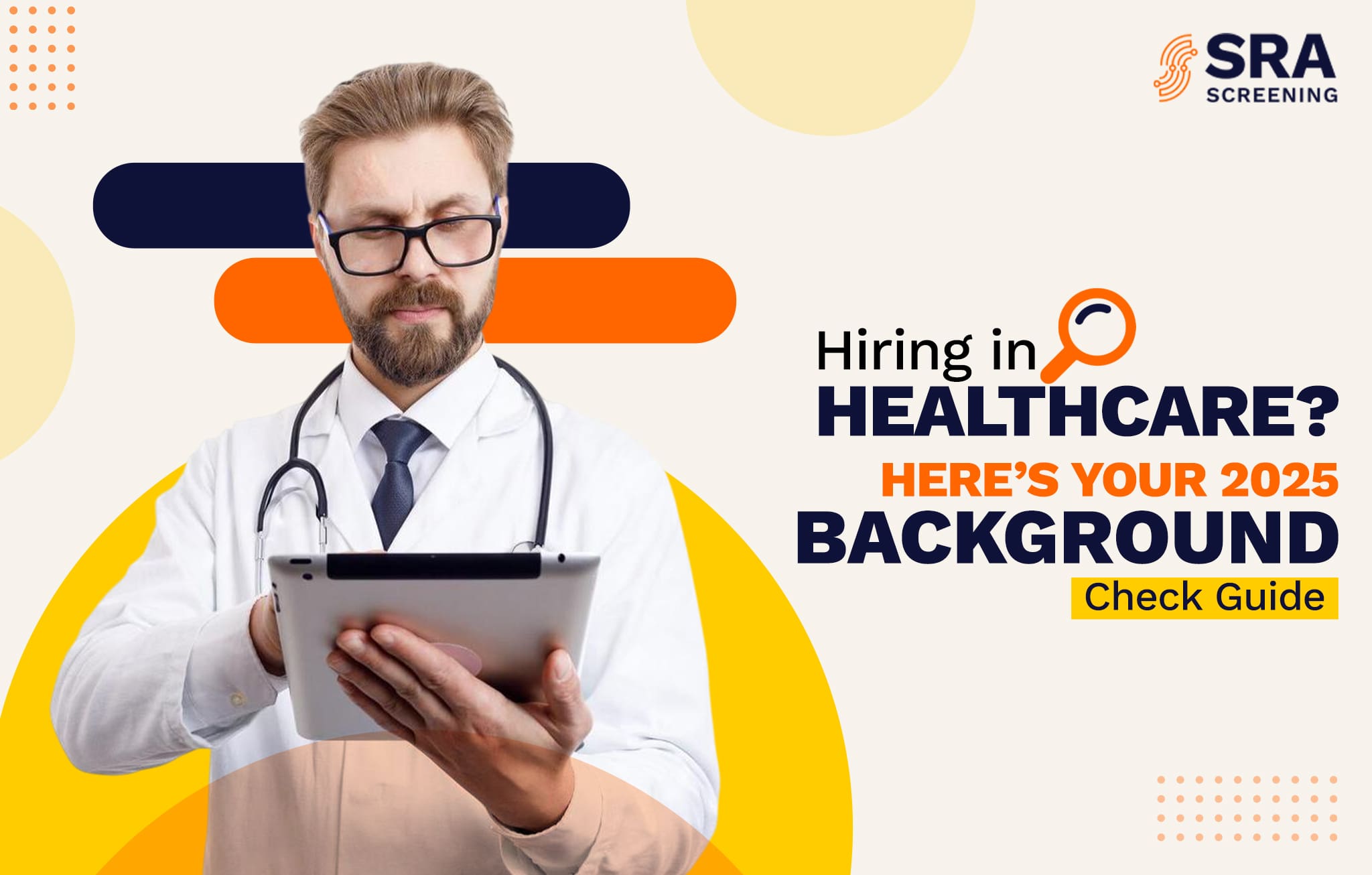
Hiring in the healthcare sector demands more than just evaluating resumes and checking references. Whether it’s a hospital, clinic, long-term care facility, or telehealth provider, organizations must uphold high standards of trust, competence, and compliance. That’s why SRA Screening offers specialized, fully compliant healthcare background checks tailored to the industry’s unique needs.
In this comprehensive guide, we’ll explain what healthcare background screening entails, why it’s necessary, and how to streamline and enhance your hiring process.
In healthcare, patient trust is paramount. Employees often have access to sensitive health data, controlled substances, and vulnerable populations. It is critical that every individual in a healthcare role is thoroughly vetted. Comprehensive background checks for healthcare employees help ensure that candidates are not only qualified but also trustworthy and pose no risk to patient safety or organizational integrity.
Equally important is regulatory compliance. Healthcare employers must adhere to complex federal and state mandates, including screening against exclusion lists like the Office of Inspector General (OIG) and the System for Award Management (SAM). Failing to comply can result in legal penalties, loss of accreditation, and removal from government-funded programs. A robust background screening program—such as those provided by SRA Screening—ensures FCRA compliance and industry-specific mandates, keeping organizations both protected and prepared for audits.
Robust healthcare background check requirements include multiple layers of verification. Here are the most critical components:
Screening for criminal history is a vital element of the healthcare hiring process. A thorough criminal background check for healthcare professionals typically includes detailed searches of county and state criminal records, federal criminal records, national criminal history database records, and multi-jurisdictional sex offender registries, providing a comprehensive view of a candidate’s criminal history and helping employers make informed, compliant hiring decisions.
Employers must check the OIG’s List of Excluded Individuals/Entities and the System for Award Management (SAM) exclusion lists to ensure that candidates are not barred from participating in federally funded healthcare programs, such as Medicare or Medicaid.
Verifying professional licenses (e.g., RN, LPN, MD) through state licensing boards confirms that credentials are current, valid, and free of disciplinary issues.
Validating past employment and educational credentials confirms a candidate’s qualifications and ensures their experience aligns with the demands of the role. This step may also include reference checks for further insight into the candidate’s work ethic and reliability.
Due to the high-risk nature of healthcare roles, pre-employment drug testing is often mandatory. Many employers also implement ongoing, random drug screenings.
Identifying prior disciplinary actions is crucial when evaluating candidates for healthcare roles. These searches help uncover license suspensions or exclusions that may not appear in standard criminal background checks. This added layer of screening helps you confidently hire qualified, trustworthy professionals who meet the standards of care your organization requires.
A smooth and compliant hiring process begins with a structured approach tailored to the unique demands of the healthcare industry. It’s essential to initiate medical staff background checks early in the recruitment cycle to avoid delays and keep hiring decisions on schedule.
Working with an experienced, accredited screening provider—such as SRA Screening—can help you navigate complex healthcare regulations and reduce compliance risks. Clear, written policies that define your screening procedures and evaluation criteria should be established and consistently applied across all positions to ensure fairness and compliance with relevant laws and regulations.
Throughout the healthcare background screening process, maintaining open communication with candidates fosters transparency, builds trust, and creates a more positive overall experience for all parties involved. This thoughtful, proactive approach strengthens your ability to hire qualified, trustworthy professionals with confidence.
Background checks in the healthcare industry aren’t just a formality; they’re a foundational part of building safe, compliant, and patient-first workplaces. By implementing a structured, compliant screening process, healthcare organizations can hire confidently, knowing they’ve done their due diligence in vetting those entrusted with patient care.
Healthcare background checks are more comprehensive due to the sensitive nature of the industry. In addition to identity and criminal history verification, they often include checks for professional licenses, healthcare sanctions, OIG/SAM exclusions, and compliance with federal healthcare regulations.
Turnaround time can vary depending on the depth of the background check and the responsiveness of external sources such as state boards or educational institutions. However, SRA Screening is committed to delivering fast, accurate results—most checks are completed within 2–3 business days.
Yes. Employers participating in federally funded healthcare programs, such as Medicare or Medicaid, are legally required to ensure that their employees are not listed on the Office of Inspector General (OIG) or System for Award Management (SAM) exclusion lists.
Background checks for healthcare workers are essential across the entire ecosystem—from hospitals and clinics to home health and telemedicine. Roles with direct patient interaction, such as nurses, physicians, medical assistants, and caregivers, require the most rigorous screening.
However, even non-clinical positions, such as billing staff, IT administrators, and custodial personnel, should be screened due to their access to sensitive data and the environments in which they work.
DISCLAIMER: This blog post is for informational purposes only and is not legal advice. Please consult a qualified professional before making any decisions.
The FCRA is enforced federally, but states may also enforce it and have their own consumer reporting laws. You may have additional rights under state law. For more information, contact your state or local consumer protection agency or your state Attorney General.
When a workplace accident occurs, employers must quickly address a range of
When a workplace accident occurs, employers must quickly address a range of
Employers who hire or manage CDL drivers are responsible for ensuring compliance
Get updates, exclusive offers, and insights straight to your inbox.
Key Resource Hub
Your Questions Answered
Editorial team insights